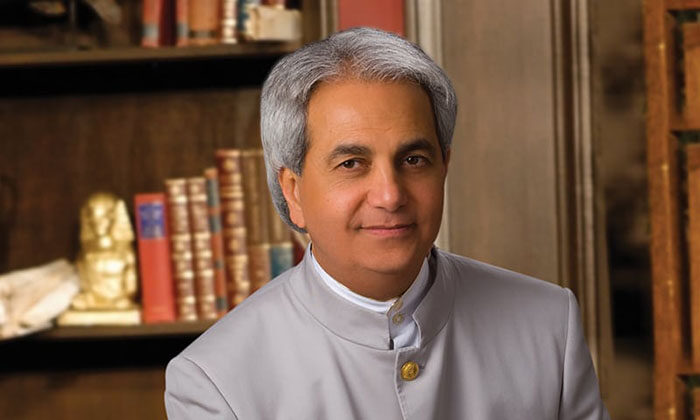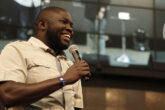
Televangelist Benny Hinn. COURTESY PHOTO.
The command to touch not God’s anointed is found in two places in Scripture: “Do not touch my anointed ones; do my prophets no harm” (1 Chronicles 16:22; Psalm 105:15).
Televangelist Benny Hinn says he has seen many men ‘fall apart’ for ‘attacking’ preachers.
The 67-year-old revealed in a gone viral video that many people today do not fear or restrain themselves from attacking God’s anointed and speaking against them.
“Even demons will not say what some Christians say against men of God. They say, “Jesus I know, and Paul I know about, but who are you?” They recognize the anointing on men, but some believers are as blind as bats,” he said.
“Demons never once attacked the son of God. They never once said He is of the devil, because they know what is of the devil and what is not. They recognized the authority of the anointing of God, that is why they said, “Have you come here to torment us before the time?” But, some Christians do not know what demons know better than they do,” he said.
“If those anointed mess up, let God deal with them, don’t touch them,” he added.
Benny Hinn stated that world-renown Christian leader Kenneth Copeland got very sick for speaking against him during one private meeting for preachers in Australia.
He later apologized, according to Benny Hinn.
“A man of God said I have touched you and ask for your forgiveness. Brother, I was shaken up when He did that. Because a man of God understood a principle of the Kingdom, and he and I are the best of friends. It began that day. I honor him for that,” Benny Hinn said.
“Touch not the anointed. Well, people say, the scripture in Psalms (refers to) Israel. You are right, but never forget that there are very many other scriptures in the book of Samuel where David said, “Don’t destroy him! Who can lay a hand on the LORD’s anointed and be guiltless? (1 Samuel 26:9),” he said.
“Touching the anointed, see what happened to the people of Israel when they came against Moses. See what happened to Miriam his sister when she came against him because of his Ethiopian (Cushite) wife (Numbers 12:1). Leprosy struck his own sister. The only reason Aaron did not die when he attacked his brother, was because he was still wearing the priesthood garment. It was the anointing of the priesthood that protected him, and death was waiting for him on mount Hor (Numbers 20). When the garment went off, death struck him in an instant for attacking his brother,”
Benny Hinn also quoted 2 Samuel 1:14 in which David asked an Amalekite, “Why were you not afraid to kill the LORD’s anointed one?”.
What Others Say
Several other theologians consider Psalm 105:15 as perhaps one of the most misused Bible verses, saying it has been twisted by many to manipulate and gain perceived “immunity.”
Mr Joseph Byamukama, a Ugandan writer and preacher who enrolled for a Master of Divinity at Gordon-Conwell Theological Seminary’s Hamilton Campus, in Massachusetts, U.S.A says, ‘touch not my anointed’ must not be used as a cloak to cover oneself from accountability, whether moral or doctrinal.
In his submission at byamukama.com, he suggests the phrase is not about particular persons protected from public scrutiny but the corporate Church kept from the harm of Satan.
“It is a warning against the world that seeks to maliciously mistreat the Church of Christ, that He who gave Himself for her salvation will not let any of her enemies go unpunished,” he says. “The Church of Christ as spiritual Israel (Rom 9:6-8, 1 Peter 2:9) and God’s people of promise, is secure in the hands of Him who cares for her.”
“Touch not My anointed” is not against questioning the leader’s unscrupulous activity and doctrine in the church but about God’s unswerving commitment to the salvation of His people,” he adds.
JB Cachila, who writes for Christian Today, urges that wrong interpretation of Psalm 105:15 causes believers to idolize gospel ministers.
“They believe that the minister is always right and that he should never be questioned,” the author says.
For us to understand what Psalm 105:15 means, Cachila says the Church needs to read it in context.
“Psalm 105 is actually a psalm written by David, remembering God’s promise to Abraham, and thus God’s people. We know that, according to the Old Testament, God promised Abraham that He would make him the father of many nations. The Bible records that God’s promise to Abraham became true in the form of Isaac, who had Jacob, from whom the nation of Israel came,”
“We read in Exodus and other books how Israel became a slave in Egypt, how God delivered them from slavery, and how He led them to the promised land – the same land He promised to Abraham. Their journey was marked with many challenges and trials, but the Lord was with them as He promised,”
“From Psalm 105:7-15 we read that when God spoke of His “anointed ones” and His “prophets,” that no one must ever touch them and no one should do them harm, He was referring to His people. He was in no way specifying a single minister or Christian. He meant everyone that belonged to Him,” Cachila says.

